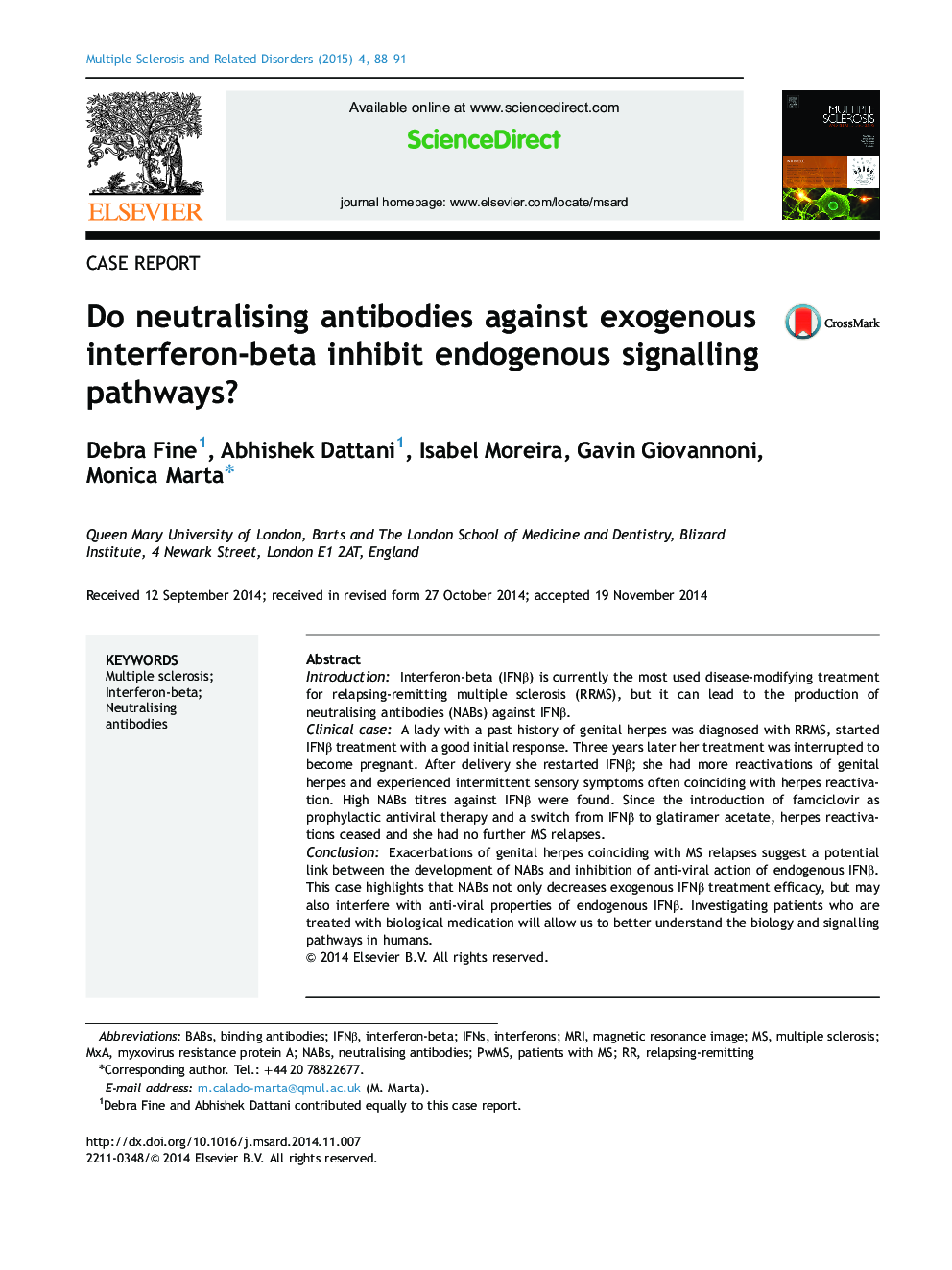| Article ID | Journal | Published Year | Pages | File Type |
|---|---|---|---|---|
| 2823865 | Multiple Sclerosis and Related Disorders | 2015 | 4 Pages |
•NABs to exogenous IFNβ decrease treatment efficacy in multiple sclerosis.•NABs may interfere with anti-viral properties of endogenous IFNβ.•NABs usually appear within the first 2 years of therapy and should be screened for.
IntroductionInterferon-beta (IFNβ) is currently the most used disease-modifying treatment for relapsing-remitting multiple sclerosis (RRMS), but it can lead to the production of neutralising antibodies (NABs) against IFNβ.Clinical caseA lady with a past history of genital herpes was diagnosed with RRMS, started IFNβ treatment with a good initial response. Three years later her treatment was interrupted to become pregnant. After delivery she restarted IFNβ; she had more reactivations of genital herpes and experienced intermittent sensory symptoms often coinciding with herpes reactivation. High NABs titres against IFNβ were found. Since the introduction of famciclovir as prophylactic antiviral therapy and a switch from IFNβ to glatiramer acetate, herpes reactivations ceased and she had no further MS relapses.ConclusionExacerbations of genital herpes coinciding with MS relapses suggest a potential link between the development of NABs and inhibition of anti-viral action of endogenous IFNβ. This case highlights that NABs not only decreases exogenous IFNβ treatment efficacy, but may also interfere with anti-viral properties of endogenous IFNβ. Investigating patients who are treated with biological medication will allow us to better understand the biology and signalling pathways in humans.
